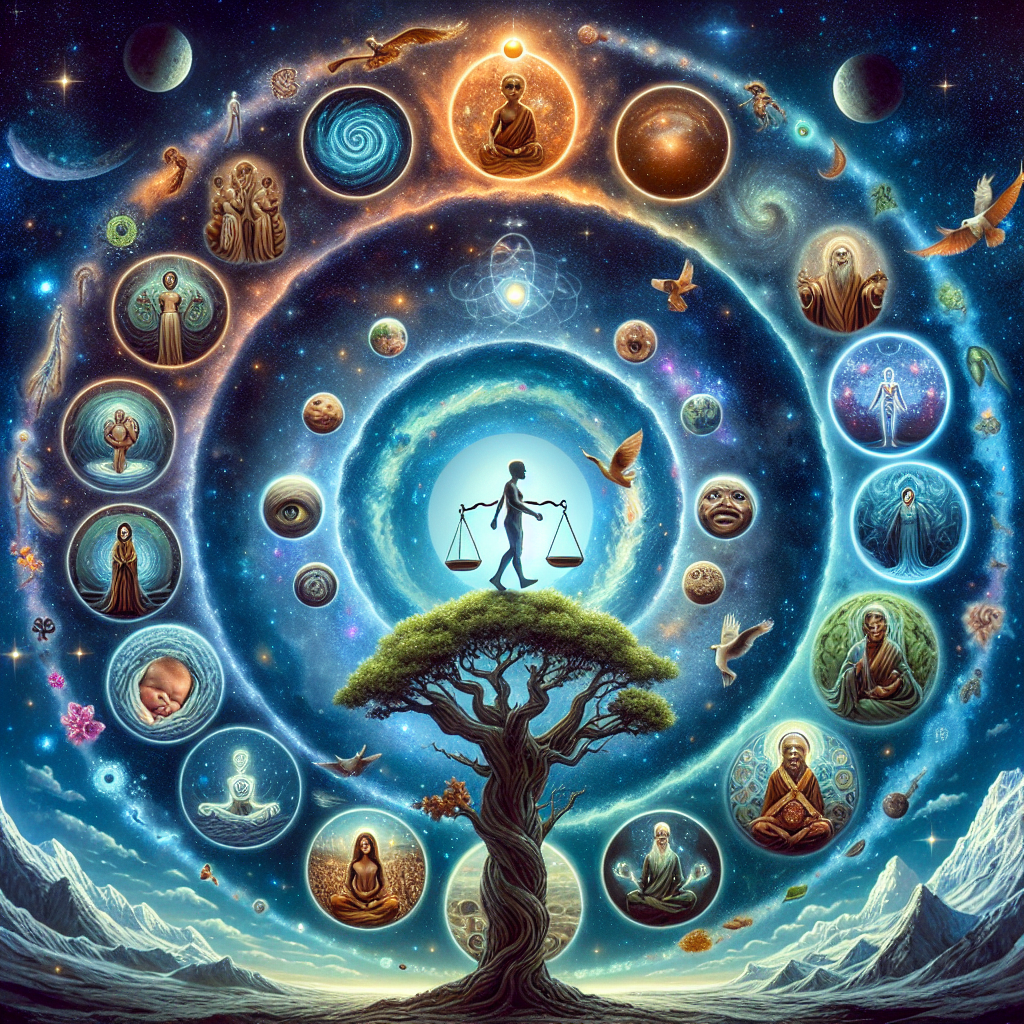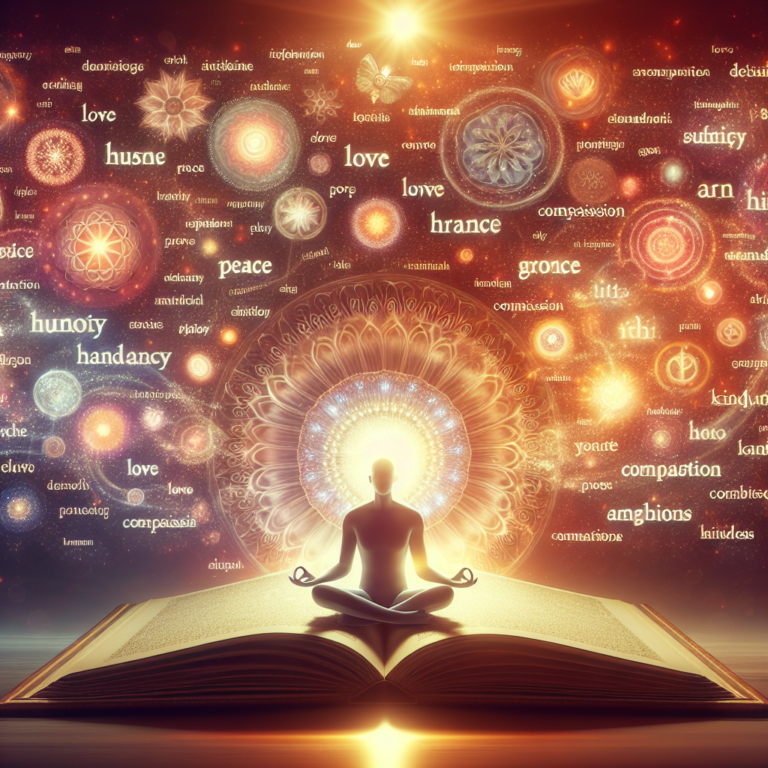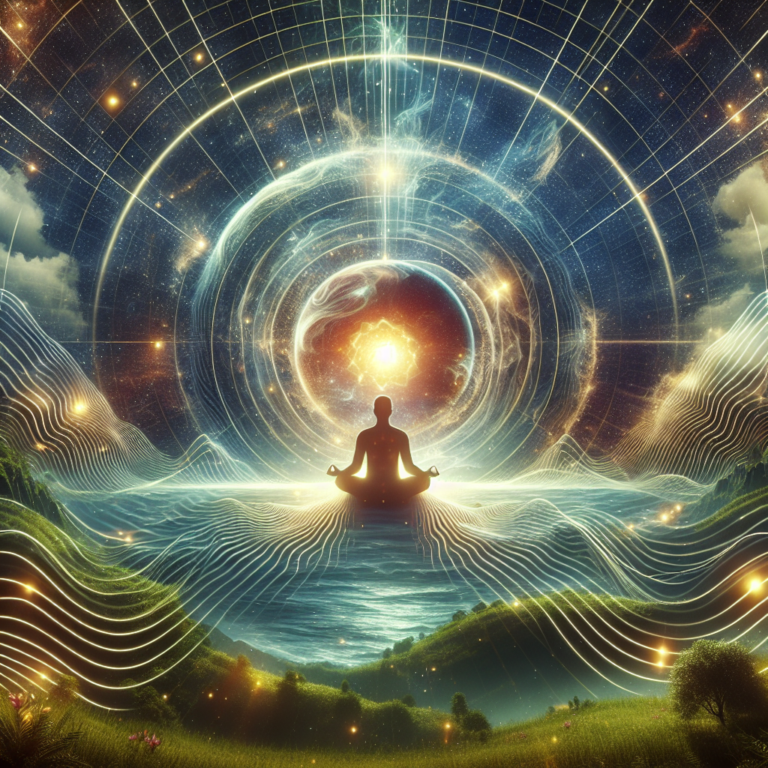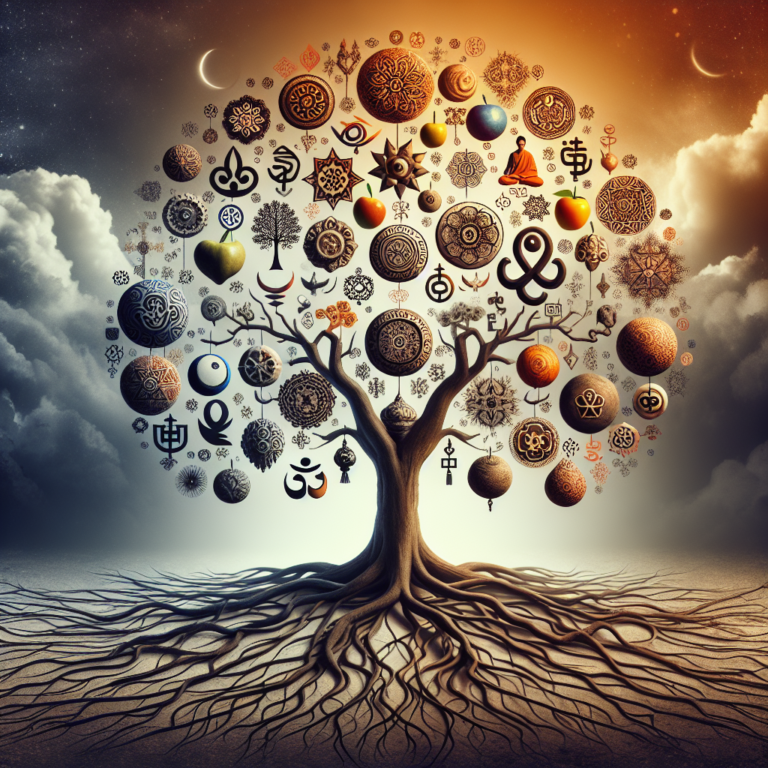The Cycle of Life: Understanding Karma and Reincarnation
Life is often perceived as a linear journey, marked by beginnings and endings in various forms. However, many spiritual traditions view life as a cyclical process that transcends the confines of a single existence. This perspective is deeply rooted in the philosophies of karma and reincarnation, which offer profound insights into existence, morality, and the continuum of life.
The Concept of Karma
Karma, a term derived from ancient Sanskrit, literally means “action.” However, its implications extend far deeper. In spiritual contexts, karma refers to the principle of cause and effect, where every action has corresponding reactions that shape not just our current life but also our future incarnations.
Types of Karma:
- Sankhāra Karma: The accumulated karmic impressions from past actions that influence present behavior and experiences.
- Prarabdha Karma: The portion of karma that is being experienced in the present life, derived from past actions that are inextricably linked to current situations.
- Kriyamana Karma: The karmic actions being performed in the present, which will shape future experiences.
Karma and Morality:
Karma is often misconstrued as a punitive system. However, it is integral to a greater understanding of morality and ethical living. In essence, good actions lead to positive outcomes, while harmful actions cause suffering. This moral underpinning encourages individuals to act with awareness and compassion, knowing their actions reverberate through time.- Karma in Different Traditions:
While karma is most commonly associated with Hinduism and Buddhism, it resonates through various cultures. For instance, in Western traditions, the concept of "what goes around, comes around" conveys a similar understanding of moral reciprocity.
The Principle of Reincarnation
Reincarnation, the belief that souls are reborn into new bodies after death, is another key element of the cycle of life. This doctrine posits that the soul is immortal and evolves through multiple lifetimes, learning lessons and refining itself through each incarnation.
Historical Context:
The notion of reincarnation is prevalent in several ancient cultures, including Hinduism, Buddhism, Jainism, and some Native American beliefs. Each tradition brings unique insights into how reincarnation influences spiritual growth and the soul’s journey.The Cycle of Samsara:
In Hinduism and Buddhism, the cycle of life, death, and rebirth is known as Samsara. This cycle is often depicted as a wheel, where souls traverse various forms of existence based on their accumulated karma. The ultimate goal is to break free from this cycle and attain liberation or enlightenment (Moksha in Hinduism and Nirvana in Buddhism).- Life Lessons and Spiritual Growth:
Each lifetime presents unique challenges and opportunities for growth. Souls may choose specific familial, social, and environmental conditions to aid their spiritual evolution. This understanding encourages individuals to confront challenges with a broader perspective, recognizing their role in a larger narrative.
Interconnectedness of Karma and Reincarnation
Karma and reincarnation are intricately linked. The actions taken in one lifetime shape the circumstances of the next. This interplay emphasizes personal responsibility—our choices today have ramifications that echo through eternity.
Lessons to Be Learned:
It is believed that if certain lessons are not learned in one life, they may present themselves again in future lives, often in varied forms. This could manifest as recurring patterns or unresolved issues that demand attention.Forging a Better Future:
Understanding the connection between karma and reincarnation offers insight into how individuals can affect their destinies. By living ethically and consciously, one can cultivate positive karma that influences future lives positively.- Healing Past Wounds:
The cyclical nature of life allows for healing. Individuals can work through past emotional or spiritual wounds, addressing traumas that may span multiple lifetimes. Healing practices such as meditation, therapy, and spiritual guidance can facilitate this process.
Conclusion
The cycle of life, underpinned by the concepts of karma and reincarnation, invites a reflective understanding of our existence. By recognizing the interconnectedness of our actions and their consequences, we can cultivate a more profound sense of awareness and responsibility. In every moment lies the potential to create a better reality—not just for ourselves but for future generations.
As we navigate through daily challenges, understanding karma and reincarnation can foster patience, compassion, and a deeper commitment to ethical living. Life is not merely a series of events but a cyclical journey of growth, evolution, and eventual awakening.
FAQs About Karma and Reincarnation
1. What is karma?
Karma is the principle of cause and effect, where every action has consequences. It indicates that good deeds will yield positive outcomes, while negative actions may lead to suffering.
2. How does karma affect reincarnation?
Karma shapes the circumstances of a person’s next life. The accumulated karma from past actions influences the conditions and challenges faced in future incarnations.
3. Is reincarnation a universally accepted belief?
No, while reincarnation is a central tenet in many Eastern religions such as Hinduism and Buddhism, it is not embraced by all cultures or religions. Some belief systems, particularly in the West, focus on a singular existence and afterlife.
4. Can individuals change their karma?
Yes, individuals can change their karma through conscious actions and choices. By applying ethical living, compassion, and mindfulness, one can accumulate positive karma.
5. Do all souls reincarnate?
According to many belief systems, most souls do reincarnate until they achieve a level of enlightenment or liberation. However, interpretations differ regarding the permanence of a soul’s status after a final liberation.
6. How do I know if I’m working through past karma?
Recurring life patterns, emotional challenges, or unresolved issues may signal that you are processing karma from past lives. Reflecting on these patterns and seeking guidance can aid in understanding and healing.
7. Can meditation help with understanding karma and reincarnation?
Yes, meditation fosters self-awareness and introspection, which can help individuals understand their actions, recognize recurring patterns, and facilitate healing, thus positively affecting their karma.
8. Are there scientific perspectives on karma and reincarnation?
While karma and reincarnation are primarily spiritual concepts, some researchers explore the psychological and sociological implications of these beliefs. However, empirical evidence for these ideas largely remains within philosophical and spiritual domains.
It seems you provided the word “Prompt.” Could you please clarify or expand on what you’re looking for? Are you interested in writing prompts, discussion prompts, or something else? Let me know how I can assist you!, #Cycle #Life #Understanding #Karma #Reincarnation, #Cycle #Life #Understanding #Karma #Reincarnation, 1735344230, the-cycle-of-life-understanding-karma-and-reincarnation





